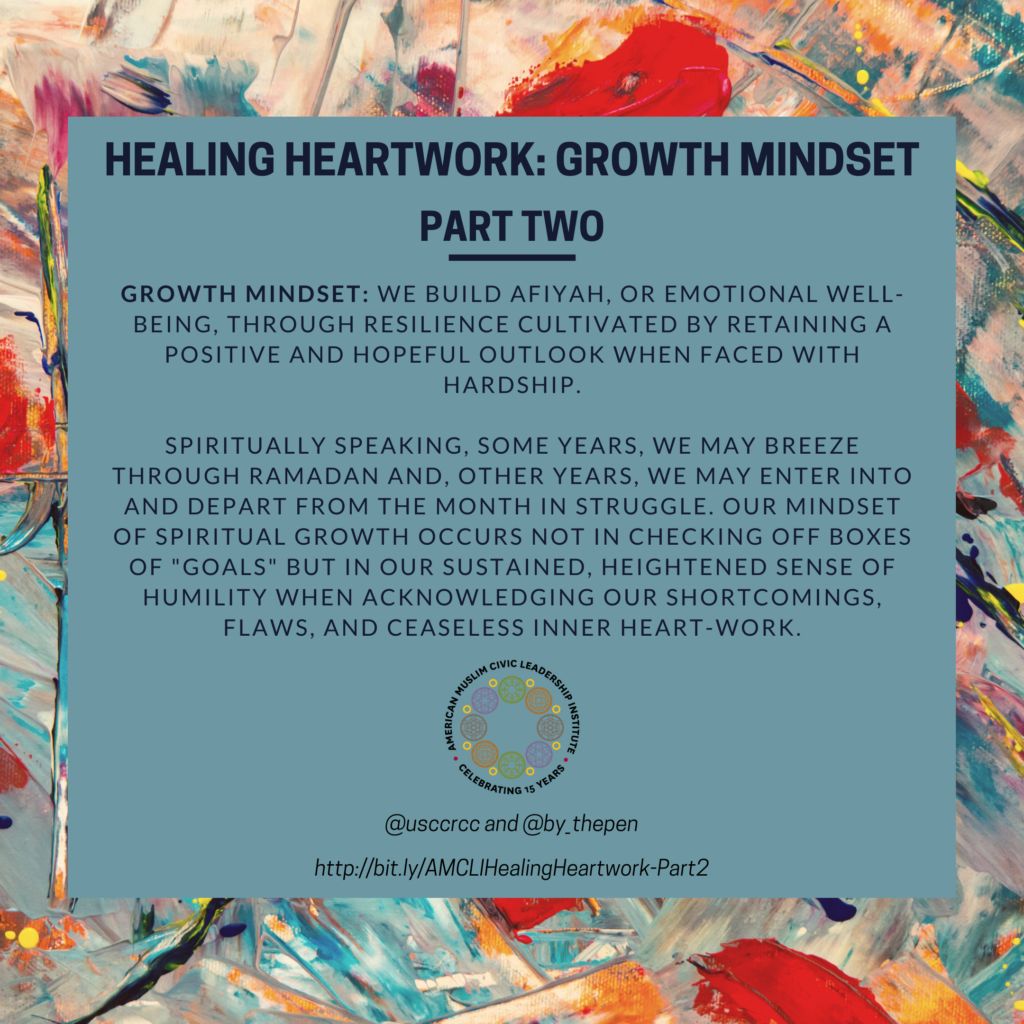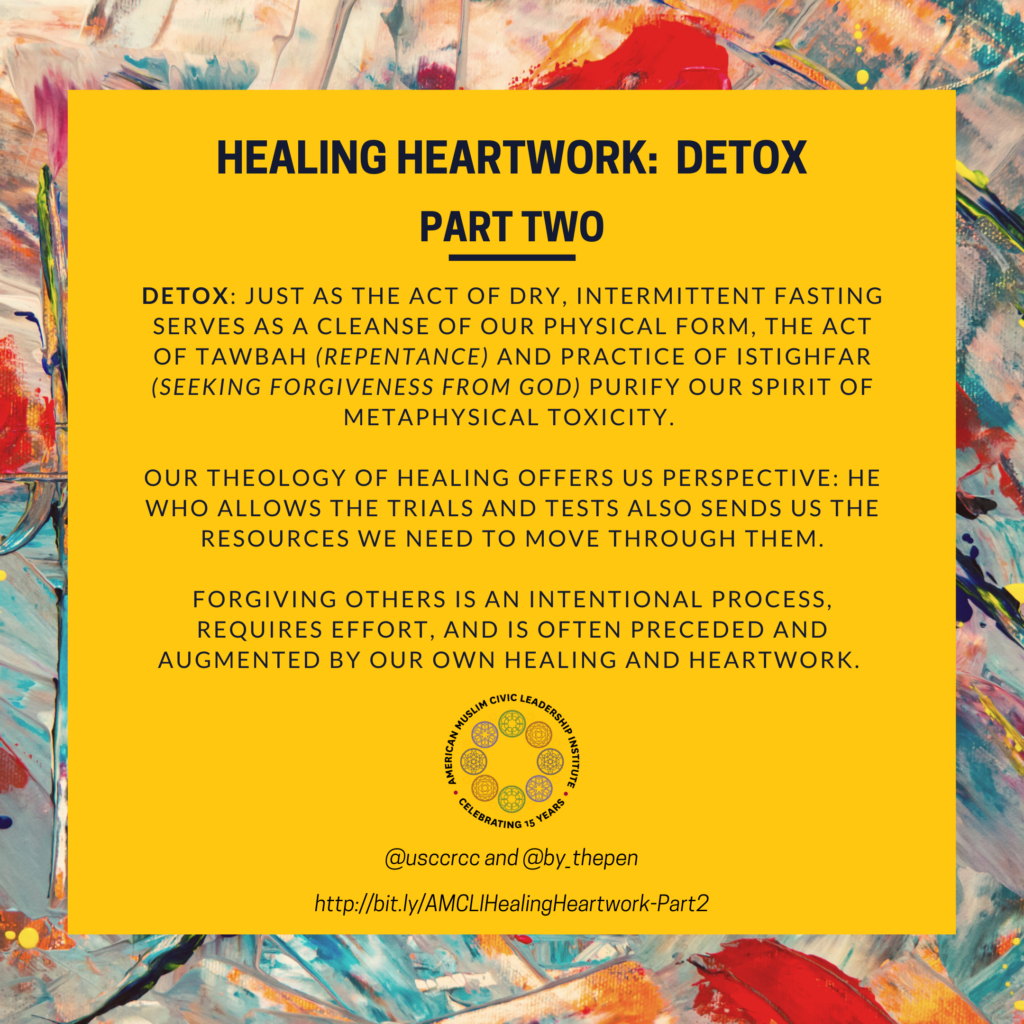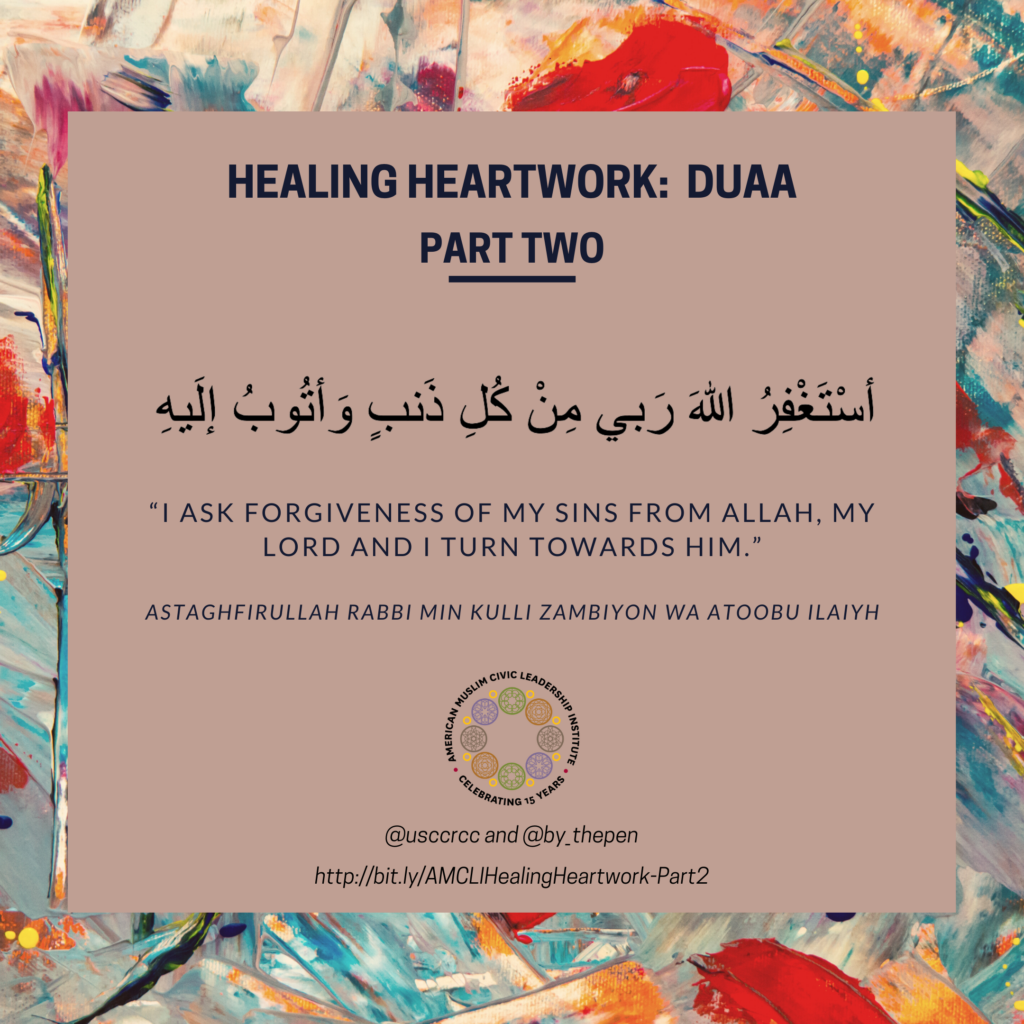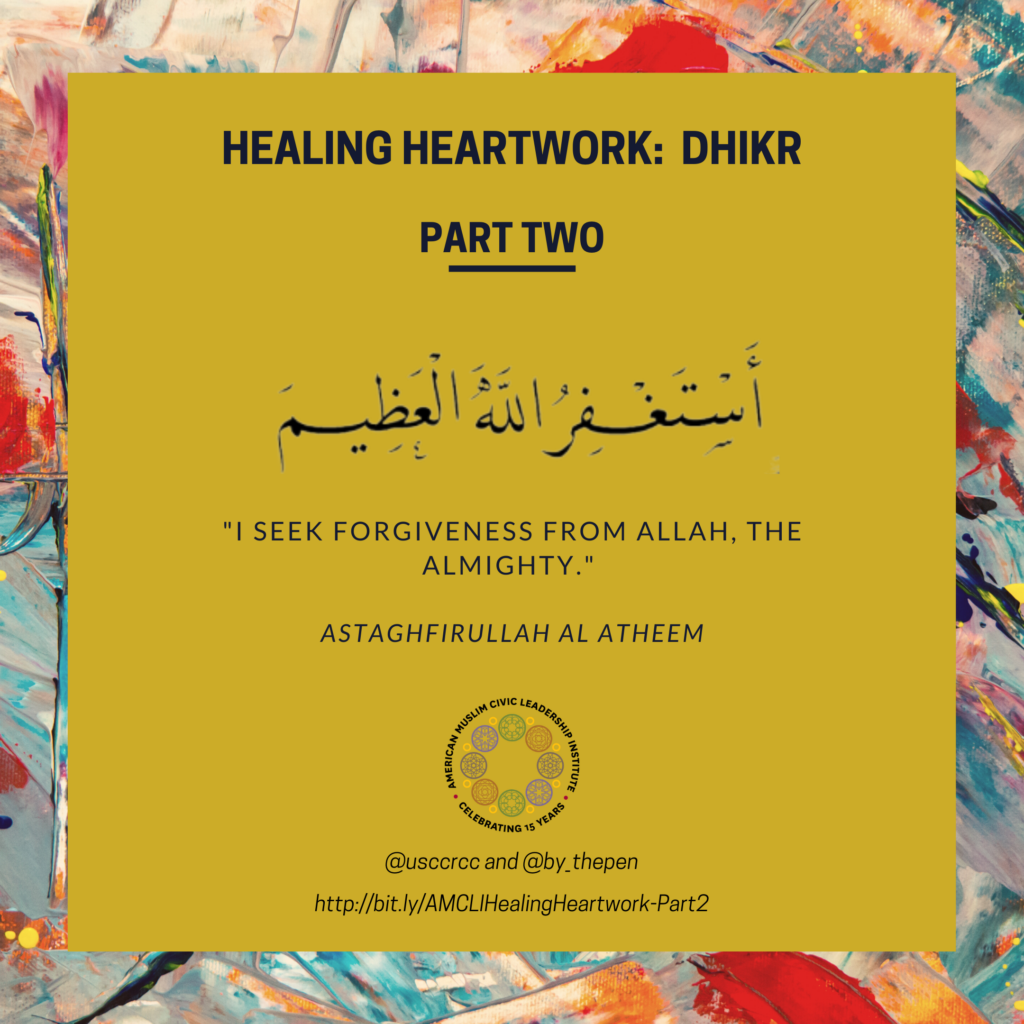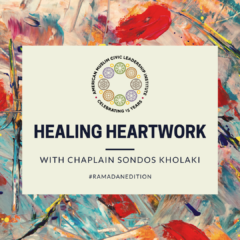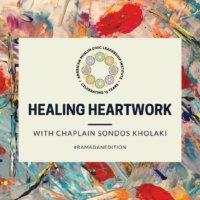Growth Mindset: We build afiyah, or emotional well-being, through resilience cultivated by retaining a positive and hopeful outlook when faced with hardship.
In the Islamic tradition, hardship presents as a transient season of qabd, or state of contraction, to endure and learn from, and as a means by which we may turn to Allah and grow spiritually and emotionally. By recognizing our potential for spiritual and personal development in challenging times, as Muslims, we may position forgiveness — the theme of the second stage of Ramadan — within a growth mindset.
Ramadan occupies a different calendar month and subsequent number of fasting hours each year, suggesting a profoundly symbolic mirroring of life in its qabd (contraction) and bast (expansion) seasons. Without the seasons of qabd, we may lose our ability to fully appreciate the seasons of bast, or expansion and respite. Perhaps we appreciate the slower pace and rest that Ramadan brings precisely because the preceding eleven months proved so grueling. And perhaps we savor that first sip of water and bite of sweet date fruit at Maghreb, prayed just after sunset, precisely because we know intimately the feeling of deprivation; water and dates simply do not taste as delicious during any other time of year.
Spiritually speaking, some years, we may breeze through Ramadan and, other years, we may enter into and depart from the month in struggle. During some seasons, we may not feel the urgency of repentance and, during other seasons, the practice of repentance remains a desperate lifeline.
At the beginning of Ramadan, we may have reflected on how to use this precious time to grow in connection to Allah. Nearly two weeks later, how are we approaching this question? Maybe we planned modestly and achieved many of our goals but only for a brief time. Or, maybe we made lofty goals and fell short. Or, maybe we found the question itself so daunting, we never really formulated an answer.
Our mindset of spiritual growth occurs not in checking off boxes of “goals” but in our sustained, heightened sense of humility when acknowledging our shortcomings, flaws, and ceaseless inner heart-work.
Without our seasons of spiritual qabd, we may increasingly and arrogantly depend on our own selves and our perceived good deeds instead of on Allah and His Grace. Why would we turn to Allah for anything if we have our metaphysical and physical lives figured out?
As human beings, we will falter, fail, and make mistakes quite often. We stumble to remain humble. Our beloved Prophet Muhammad ﷺ said, “Indeed I ask Allah for forgiveness seventy times a day.” Even for the one promised Paradise, whose heart was tenderly cleansed of black spots by angels, he ﷺ sought forgiveness, always humbly refining himself in the presence of His Lord. Rather than embracing misplaced pride in any new spiritual achievements and deeming ourselves as “better than” others or in a position to “reform” others as a result, we may find that our sincere and unpresuming seeking — and not just the intended outcome — presents as the key to that connection to Allah after all. In our qabd, in our weariness and brokenness, it may be that we are the closest to Him that we will ever find ourselves.
Detox: Just as the act of dry, intermittent fasting serves as a cleanse of our physical form from inflammation, bad cholesterol, high blood sugar, and toxins, the act of tawbah (repentance) and practice of istighfar (seeking forgiveness from God) purify our spirit of metaphysical toxicity. As we empty our stomachs during the fasting day, we may engage in istighfar to empty our spirit of whatever grievances weigh us down.
For Muslims, hope — the antithesis of despair — remains incumbent upon believers: “Despair not of God’s Merciful Relief; truly, none despair of God’s Merciful Relief save those without faith” (Qur’an 12:87). The repetition of the wording here calls to mind another hope-inducing verse, “With hardship comes ease; indeed, with hardship comes ease” (94:5-6).
Our theology of healing offers us perspective: He who allows the trials and tests also sends us the resources we need to move through them.
We may look to the story of Adam and Hawa (as), both of whom erred and disobeyed their Lord. Upon realizing their mistake, Adam and Hawa (as) cried out, “Our Lord, we have wronged our souls: if You do not forgive us and have mercy, we shall be lost” (7:23). This statement of sincere regret and humility reaped an incredible reward whereby Allah taught Adam the words to say in repentance and subsequently forgave them (2:37). Allah may expect us to falter, but He does not set us up to fail. He will send us what we need to rectify our state; we merely need to turn to Him in humility. Retaining this good opinion of Allah and our relationship with Him enhances our positive coping skills and growth mindset.
The Prophet ﷺ emphatically reminded his companions that The Most Merciful, The Most Benevolent welcomes every believer who regrets his or her misdeeds and turns to Him with sincerity and in humility: “By Him in whose hand is my soul, if you did not sin, Allah would replace you with people who would sin and they would seek forgiveness from Allah and He would forgive them.”
A teacher once told her students that she asks Allah for forgiveness one thousand times a day to remind herself that if Allah can forgive her, what excuse would she have to not extend forgiveness to others? Sometimes, however, asking for forgiveness for our shortcomings from the Most Merciful, the Most Generous remains far easier than extending forgiveness toward others, particularly those who hurt us beyond comprehension. We may recall the story told to us by our beloved Prophet ﷺ of the man promised Jannah for his intentionality in forgiving those who wronged him every night before he slept.
Forgiving others is an intentional process, requires effort, and is often preceded and augmented by our own healing and heartwork. Whether we say the dhikr of forgiveness seventy times or one thousand times, we may imagine the black spots on our own heart disappearing, one by one, through this detox practice.
Our shortcomings and inadequacies, and our mistakes and failings offer us a valuable source of learning about ourselves as well as a means of developing compassion for others when they succumb to their lower self. Allah states clearly that all of us will experience hardship in one form or another (2:155); in other words, all of us have struggled, are struggling, and will struggle. Our hardships and failings create the cracks through which we may begin to see beyond our own egos, and when we work beyond the failings, we appreciate that much more the potential of Bani Adam (humankind) to refine oneself, bloom, and grow. Alhamdulillah for healing.
Suggested duaa for the second set of ten days:
“I ask forgiveness of my sins from Allah, my Lord and I turn towards Him.”
Astaghfirullah rabbi min kulli zambiyon wa atoobu ilaiyh
Suggested dhikr* for the second set of ten days:
“I seek forgiveness from Allah, the Almighty.”
Astaghfirullah al Atheem
*Consider the emptying function of this particular dhikr: as one empties and detoxes the physical body through fasting, we empty and detox the spiritual heart through istighfar.
To download the full infographic for Part Two: Mercy and Compassion, click below:
The Healing Heartwork Toolkit is a collaboration between AMCLI and Chaplain Sondos Kholaki.
Chaplain Sondos Kholaki is an AMCLI fellow and guest contributor with the USC Center for Religion and Civic Culture.

